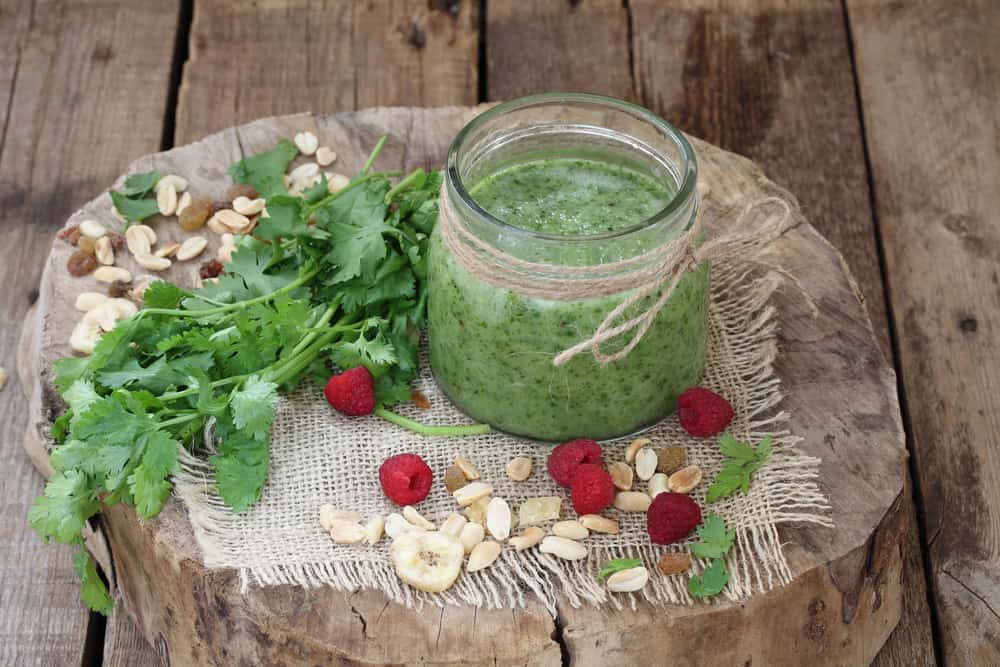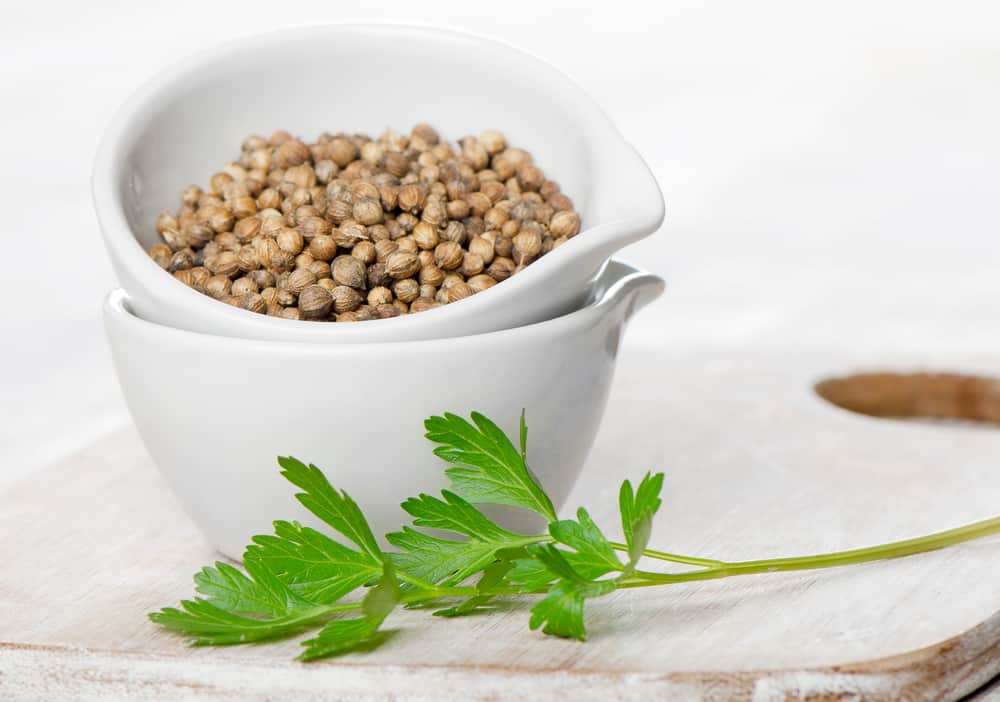Coriander also is known as cilantro, is an herb related to parsley. Coriander health benefits have been known for centuries. Additionally, coriander has been considered an aphrodisiac and a fertility booster in addition to many other proven properties. Coriander is high in many vitamins and minerals, such as Vitamin A, Folate, Potassium, Vitamin E, manganese, calcium, iron, magnesium. Also, it has antibiotic, anti-inflammatory, and anti-oxidant qualities that make it a valuable weapon to fight against cardiovascular disease, diabetes, inflammatory processes and more.
Read on for coriander health benefits and how ten specific ways coriander can keep you healthy.
1. Hearth health
Coriander health benefits include lower cholesterol levels and lower blood pressure. The herb’s high levels of potassium will help level out sodium levels, which can result in great benefits to your heart health. Additionally, taking cilantro can dissolve cholesterol buildups (plaques) in the arteries, protecting them against arteriosclerosis.
2. Stress and Anxiety Relief
Coriander health benefits can include a better night’s sleep, resulting in lowered stress and anxiety. Also, studies have shown that cilantro, in the right doses, can be as beneficial as prescription drugs taken for anxiety, without the potential negative side effects of medications.
3. Brain Support
Coriander’s ability to remove harmful metals and impurities from the body makes it very effective in clearing brain fog, improving memory and recall, and maintaining alertness. Moreover, its anti-inflammatory and anti-oxidants make it a very helpful tool in battling Alzheimer’s and dementia. Coriander crosses the blood/brain barrier, meaning it can work directly on the brain itself.
4. Urinary tract infection (UTI)
The antibiotic properties of coriander make it a great source for naturally preventing or treating UTIs. Coriander keeps the urinary tract bacteria free, fighting the E. choli and staphylococcus bacteria that cause UTIs.
Also, consuming coriander daily will help the urinary tract maintain healthy levels of alkalinity to protect against UTIs. If a UTI develops, coriander can help ease the pain and urgency within hours when mixed with water.
5. Digestive Health
Coriander another health benefit is that it is useful for treating nausea, bloating, gas, heartburn, indigestion, and stomach cramps. Coriander aids the breakdown of foods by encouraging the production of digestive enzymes.
6. Protects against food poisoning
Coriander is a naturally occurring antibiotic. When taken with meals, it can help to protect your body from food or waterborne diseases like dysentery, cholera, listeria, salmonella, and other food poisonings.
7. Detoxifies
One of the unique coriander health benefits is its ability to remove and neutralize heavy metals in the body. Aluminum, mercury, lead, arsenic, and cadmium are just a few of the metals that can build up in the body, causing hormonal imbalances, heart disease, and neurological disorders.
Coriander will bind with these metals and loosen them from body tissue and cells, allowing them to be removed from the body. For the best detoxifying effects, use a prepared tincture of cilantro.
8. Lowers blood glucose
Coriander has been shown to be effective in lowering blood sugar levels when eaten raw, mixed into salads, or mixed into smoothies or green shakes.
9. Prevents neurological inflammation
Many disease processes begin with inflammation. Coriander fights inflammation and can ease neurological conditions like Alzheimer’s, MS, Parkinson’s, and some forms of brain tumors. Coriander health benefits stem from strong anti-oxidant properties, allowing it to be a valuable tool in fighting free radicals that cause inflammation.
10. Anti-histamines
You can also use coriander as anti-histamines for topical relief of hives, poison ivy, and sunburns. Make a solution with coriander and water to apply directly to the rash, and then drink the rest to fight discomfort inside and out.
If you don’t care for the taste of cilantro, you’re not alone; there is still a way to topically apply the herb to enjoy the effective coriander health benefits for rashes by mixing the cilantro with coconut oil and applying liberally to the affected site.
Coriander adverse reactions:
To experience the best coriander health benefits, it’s advisable to eat a few teaspoonfuls every day. This can be sprinkled on foods, brewed into teas, or mixed into shakes and smoothies. Some of the coriander adverse reactions are:
- As with anything, there is the possibility of adverse reactions when consuming cilantro. Most of these are due to allergies, or exaggerated cilantro health benefits, like blood pressure that has dropped too low.
- Too much cilantro can have the opposite effect of what you are taking the herb for. It can, when taken in high doses, cause an upset stomach and other digestive disorders, and inflammatory responses.
- Over consuming cilantro has been linked to increased skin sensitivity that can lead to sunburn. Also, allergic reactions can result in the development of rashes or, in some cases, respiratory issues.
- In some very rare cases, eating too much cilantro can lead to chest pains.
- If you are pregnant or nursing, ask your doctor before adding any herbs or supplements to your diet.
It is obvious that there are numerous coriander health benefits and any number of ways to get them even if you hate the taste and smell of coriander. If you hate coriander, you can make it much more palatable by mixing it into other foods, such as pesto, shakes, and green smoothies.





